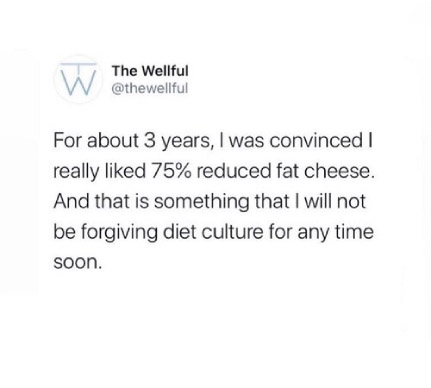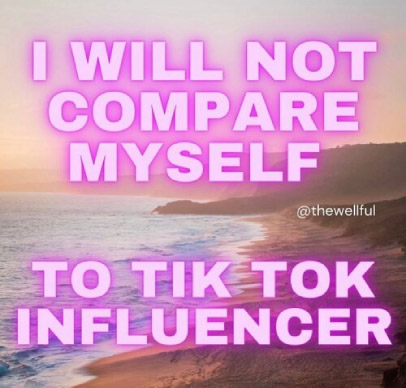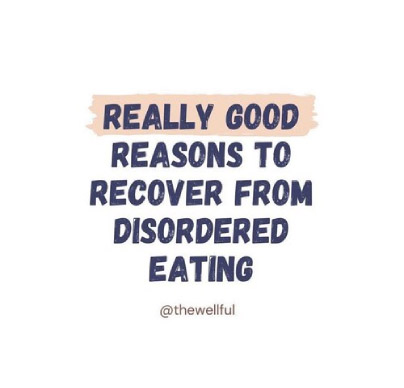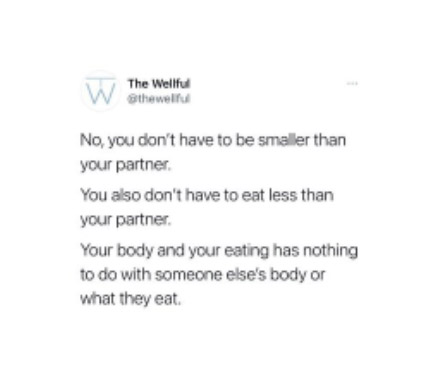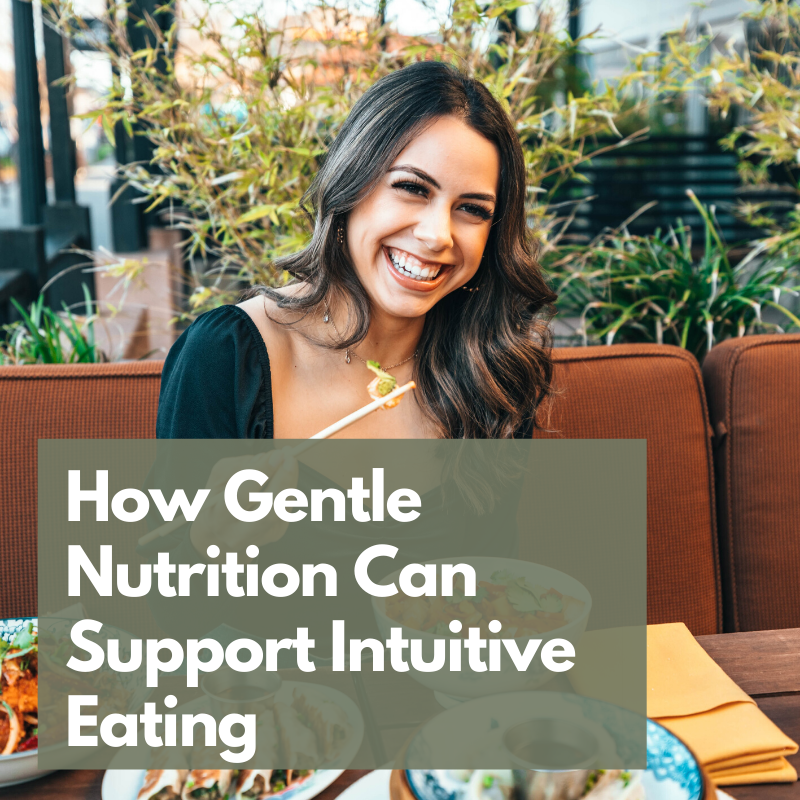
Here at The Wellful, our goal is to make nutrition less confusing. Nutrition doesn’t need to be complicated and yet it makes sense if you’re like “what the heck do I even eat?” nowadays. Diet culture has gotten real sneaky and morphed into what Christy Harrison calls the Wellness Diet (looking at you Noom). Gone are the days of SlimFast, replaced with “cleanses”, “sugar detoxes”, and “clean eating” disguised as ways to “improve health”. That’s why I prefer to break nutrition down into basics and keep it as simple as possible. Below are the 3 areas that I have found helpful to start with in recovery from disordered eating and diet culture that can help support the foundations of intuitive eating.
1. Carbs, fat, protein, fiber, & variety
Our bodies like nutrition from a variety of foods and usually in a combo of some sort so that it doesn’t feel like something is missing. One thing I hear a lot is “I don’t really like cereal or oatmeal for breakfast because I don’t feel full or I find myself hungry soon after.” This makes sense! These foods are mostly carbohydrates which are typically digested easily & quickly by the body because glucose is our main source of fuel and prefers it – this is not a problem. However, if we miss out on protein and yummy fats then our bodies are just left wondering…”where’s the rest?”. Quick fix > add some yumminess (maybe in the form of nut butter/nuts/milk/fruit/coconut/seeds/chocolate chips/granola/eggs/sausages) for more flavor and staying power.
2. ENOUGH
I encourage you to challenge what you’ve been told is a good portion or “enough”. So often I see women eating very small meals (more like a snack) and expecting that to fill them up and keep them energized when really it’s only enough food to hold you over for an hour or two. If you’re meal hungry, then a snack just isn’t’ going to satisfy you! If you find yourself thinking about food a lot or never feeling satisfied try adding more to your plate.
3. Timing
Not the kind you might be thinking of! No I’m not talking about rules or weird eating windows here, more like “when was the last time I ate?…has it been more than 3-4 hours?” and doing a little check-in with yourself. It’s not uncommon to get distracted and delay eating which can shut down hunger cues and feed disordered eating behaviors or lead to extreme hunger and binging. Eating every 3-4ish hours depending on hunger levels can also help awaken hunger and fullness cues that may be MIA from ignoring them for so long.
Dieting disconnects you from being able to tune in – so instead of thinking “what do I feel like having/what sounds good?”, you may think “well I already had bread for breakfast so can’t have it again..ate cheese earlier so can’t have that twice…going out to eat tomorrow so better be careful, and so on. Where your body would naturally regulate based on what it needs (this looks different for everyone), our brains (hijacked by diet culture) take over, typically leading to a restrict/binge cycle and/or feeling chaotic with food.
We live in an environment that’s inherently disordered so it’s completely understandable if this feels hard to navigate and we hope this information is helpful to you in your journey to peace with food and intuitive eating.
If you’re looking to take the next step working on your relationship with food & your body, book a free discovery call to learn more about our virtual nutrition coaching.





